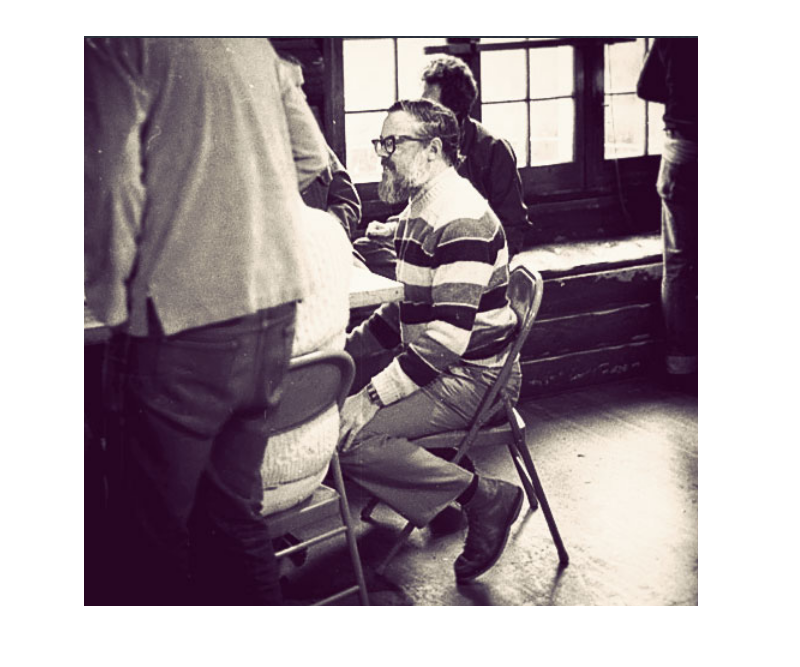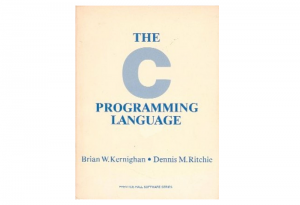
This week at SlashDB we want to honor our computer science forebear, Dennis Ritchie, in our Flashback Friday blog series.
Ritchie is the creator of the programming language C, which basically means he is the creator of digital life as we know it. For those of you who don’t know, C and its successors are the languages that serve as the foundation for most browsers including Firefox.1 In addition to this, your smartphone is brought to you courtesy of Ritchie’s technology. With such tremendous contributions to computer science, Ritchie has clearly earned a spot in our Flashback Friday series.
So let’s flashback and remember the man who made Googling on your phone possible.

Ritchie graduated from Harvard University with degrees in physics and applied mathematics and, later on, a Ph.D in mathematics.2 He quickly found his niche in the world, not in mathematics or physics, but in computer science which he was introduced to while working at the computer center at MIT while still a graduate student.3 After finishing school, Ritchie began working at Bell Labs where he collaborated with Ken Thompson on C and Unix.4

The C programming language (so named for being the successor language to B, a programming language created by Ken Thompson for Bell Labs5) is still widely used today and its descendants (C++ and Java) expand on the ideas and grammar that Ritchie created.6 The Unix operating system that Ritchie designed has also had a tremendous impact in the field of computer science – it underpins Mac OS X (Apple’s desktop system) and iOS, which runs the iPhone and iPad systems.7 Furthermore, Unix’s open-source variant, Linux, underpins major data centers, like those for Google and Amazon.8 The Unix kernel (written in C, incidentally) is basically what the entire Internet runs on9 and almost all web servers and browsers are written in C or its descendants (C++ and Java or in Python or Ruby, which are implemented in C).10
It’s not an exaggeration to say that Ritchie’s major creations (C and Unix) and their descendants run almost everything we use in our digital lives today. Ritchie’s contributions to computer science are truly staggering.
Knowing these facts makes you question why Ritchie’s name is not better known. Many compare his contributions to those of Steve Jobs, a media giant, who, incidentally, died seven days before Ritchie. Jobs’ death was heavily covered in the media, but Ritchie’s death received only minimal attention. There are two possible reasons for Ritchie’s lack of fame – the first is that he simply didn’t want it. Ritchie was reportedly an unusually private person. The second is that his contributions, vast and profound as they are, are essentially invisible. Ritchie created code, the fundamental yet invisible component to all of our digital gadgets. The defining difference between Jobs and Ritchie is that you hold Jobs’ creations in your hands, while Ritchie’s creations are completely invisible to the eye, an unseen ghostly power that whispers commands to your browser and Apple products. Such intangibility makes it easy to remain ignorant of Ritchie’s contributions.
At SlashDB, we deeply admire Ritchie’s contributions as well as his modesty. Ritchie cared more about his work than he cared about fame. We wish to commemorate his life and achievements, especially his commitment to advancing computer technology and making computers instruments of knowledge, entertainment, and business. Ritchie made technology easier to use and adapt – two things that we constantly strive for at SlashDB.
You’ll be glad to know that Ritchie’s achievements have not gone completely unnoticed by the world – after all his work really did lay the foundation for the modern digital world. Alongside his colleague Ken Thompson, he was awarded the Turing Award in 1983 (the highest computer science award), the National Medal for Technology and Innovation in 1999, and several months before his death, the Japan Prize in 2011.11 Let’s hope this article helps him be more widely known and appreciated, even if only posthumously – which presumably he would have preferred.
- Steve Lohr, “Dennis Ritchie, Trailblazer in Digital Era, Dies at 70,” NY Times, accessed October 15, 2015. http://www.nytimes.com/2011/10/14/technology/dennis-ritchie-programming-trailblazer-dies-at-70.html?_r=0.
- “Dennis Ritchie, 1997 Fellow,” Computer History.org, accessed October 15, 2015. www.computerhistory.org/fellowawards/hall/bios/Dennis,Ritchie/.
- Steve Lohr, “Dennis Ritchie, Trailblazer in Digital Era, Dies at 70,” NY Times, accessed October 15, 2015. http://www.nytimes.com/2011/10/14/technology/dennis-ritchie-programming-trailblazer-dies-at-70.html?_r=0.
- Ibid.
- Cade Metz, “Dennis Ritchie: The Shoulders Steve Jobs Stood On,” Wired.com, accessed October 15, 2015. http://www.wired.com/2011/10/thedennisritchieeffect/.
- Steve Lohr, “Dennis Ritchie, Trailblazer in Digital Era, Dies at 70,” NY Times, accessed October 15, 2015. http://www.nytimes.com/2011/10/14/technology/dennis-ritchie-programming-trailblazer-dies-at-70.html?_r=0.
- Cade Metz, “Dennis Ritchie: The Shoulders Steve Jobs Stood On,” Wired.com, accessed October 15, 2015. http://www.wired.com/2011/10/thedennisritchieeffect/.
- Steve Lohr, “Dennis Ritchie, Trailblazer in Digital Era, Dies at 70,” NY Times, accessed October 15, 2015. http://www.nytimes.com/2011/10/14/technology/dennis-ritchie-programming-trailblazer-dies-at-70.html?_r=0.
- Cade Metz, “Dennis Ritchie: The Shoulders Steve Jobs Stood On,” Wired.com, accessed October 15, 2015. http://www.wired.com/2011/10/thedennisritchieeffect/.
- Ibid.
- “Dennis Ritchie, 1997 Fellow,” Computer History.org, accessed October 15, 2015. www.computerhistory.org/fellowawards/hall/bios/Dennis,Ritchie/.
